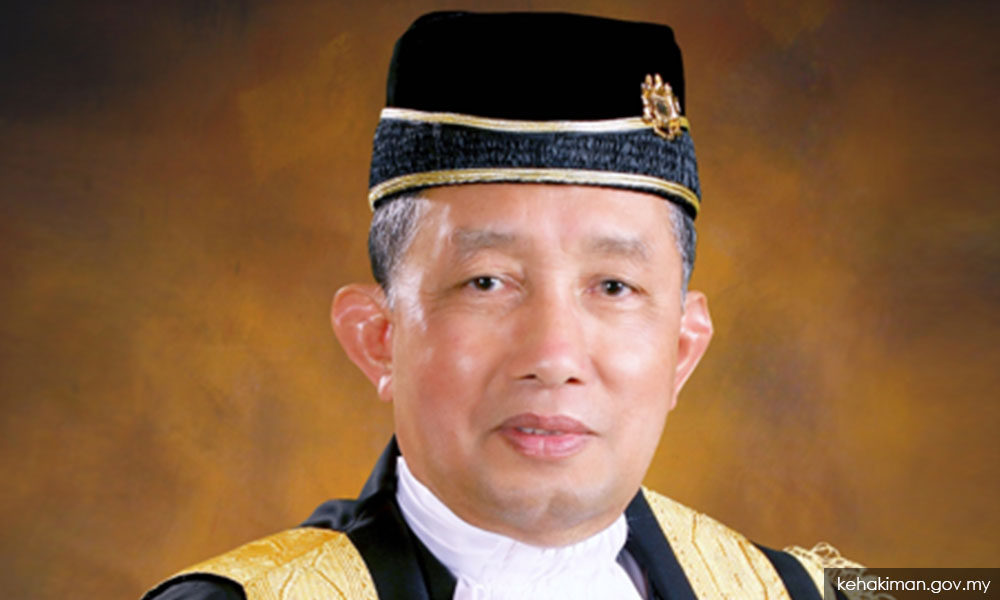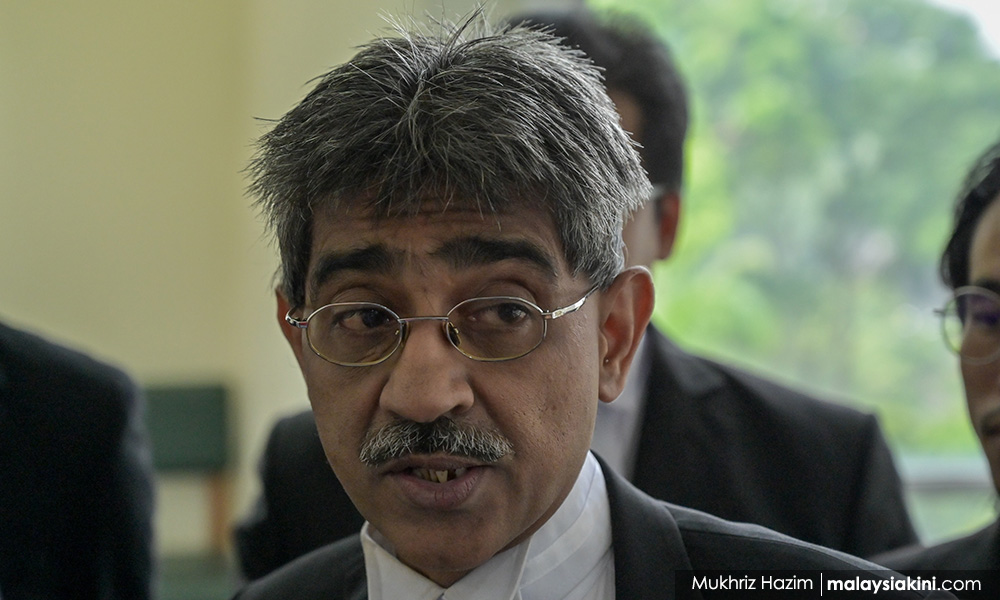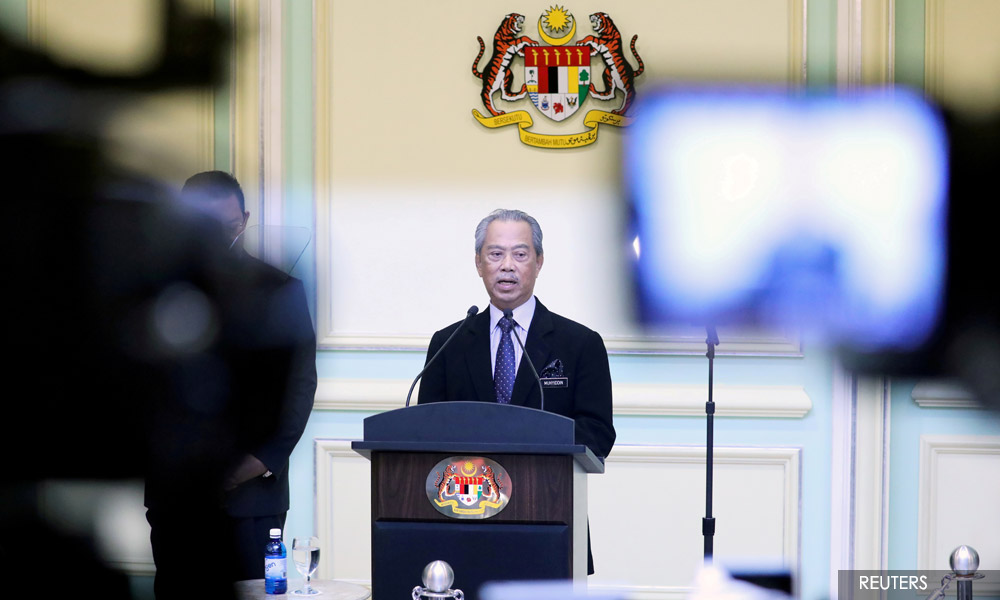Several lawyers have disputed Attorney-General Idrus Harun's argument that a vote of confidence in Parliament is not necessary as the Yang di-Pertuan Agong had already appointed Ismail Sabri Yaakob as prime minister as per the Federal Constitution.
They cited Article 43(2) and Article 43(4) of the Federal Constitution on the king's role to appoint a prime minister, as well as an appointed prime minister's duty to resign upon losing majority support in the Dewan Rakyat.
Lawyer Andrew Khoo (above) said Idrus' view that a vote of confidence would actually undermine the Agong's power is "outdated and misguided".
"It is a function of the Agong under the constitution to appoint a prime minister, but it is not an unquestionable, unchallengeable decision," Khoo told Malaysiakini.
"We no longer live in the era of an absolute monarch, whose decrees and decisions must be obeyed on pain of disloyalty or death.
"So within the very same provision of the constitution that confers upon the Agong the power to appoint a prime minister is the acknowledgement that the real power in a system of constitutional monarchy is the rakyat, or in this case, representatives of the rakyat," he said.
Contrary to Idrus' view, Khoo said current times of insecure politics and uncertain support call for the prime minister appointment ultimately being tested in Parliament.

Khoo, who is the co-chair of the Bar Council’s Constitutional Law Committee, pointed out that elected representatives are still allowed to change their minds based on newer developments following Ismail Sabri's appointment.
"They may not have liked what the PM has said and done. They may not agree with his choice of cabinet ministers and other appointments.
"So at the start of the new session of Parliament let all MPs declare openly where they stand," he said.
Lawyer Haniff Khatri Abdulla also shot down Idrus' argument as "inaccurate" and a mistaken interpretation of Article 43(2) and Article 43(4) of the constitution.
He said the two interlinked provisions must be read together and that one does not supersede the other.
"It is clear that the statement by Idrus does not reflect a real understanding of the interlinked and mutually supporting connection between Article 43(2) and Article 43(4), until they have been misinterpreted as if a motion of confidence or a motion of no confidence would undermine the king's role," Haniff said in a statement.
In a situation where a prime minister was appointed as a replacement mid-way through an election term, he said the individual would be bound by a parliamentary convention to table a motion of confidence.
Haniff also reminded that such a move was carried out by two former premiers - Hussein Onn and Abdullah Ahmad Badawi - who entered office to replace their predecessors, Abdul Razak Hussein and Dr Mahathir Mohamad.

In disputing Idrus, both Khoo and Haniff also cited Agong's decree on Aug 18 that the new prime minister must seek a vote of confidence as soon as possible.
"Surely the AG is not suggesting that the process by which the Agong went about determining his choice should in any way supplant or override a vote of confidence in the Dewan Rakyat itself.
"Even the Agong did not think so," said Khoo.
Similarly, lawyer Karen Cheah said she disagreed with Idrus' view, based on the king's decree.
"The assessment taken by the Agong prior to the appointment of the prime minister which led to the judgment that the current prime minister is likely to command the confidence of majority - should be democratically tested and recorded in Parliament.
"Communication between Agong and the MPs whether by way of statutory declarations or verbal engagements prior to the appointment of the prime minister is only one way of dealing with the issue of confidence," said Cheah.
'Impact of not calling for confidence vote'
Meanwhile, lawyer Malik Imtiaz Sarwar said parties should consider the legal impact of not calling for a confidence vote.
"On the face of it, Ismail Sabri would still be the prime minister. However, this leaves it open to the opposition or other parties to question whether the majority really support the prime minister," said Malik.
"The situation will be what it was, unstable, when Muhyiddin (Yassin) was prime minister," he added.

Malik also noted that Idrus had correctly pointed out there was no constitutional requirement for a vote of confidence after a prime minister has been appointed.
"However, there is nothing which expressly bars the Agong from imposing a condition for a vote of confidence to be moved upon resumption of Parliament in order that the government be shown to be stable," he said.
Meanwhile, the Pakatan Harapan Legal Committee said Idrus' view has violated the practice, "precedent" and the prevalence of the convention of a no-confidence motion in Parliament.
The eight-member committee of Harapan federal lawmakers led by Selayang MP William Leong said the Agong's decree has shown his wisdom which upheld the practice of conventions in Parliament.
"In fact, constitutional conventions that are closely related to the vote of confidence are part of the spirit of parliamentary democracy," they said in a statement.
Rather than dismissing the need for a confidence vote, they said Idrus should have supported Agong's proposal which in turn could nurture the country’s traditions.
"In fact, the constitution is not limited to the existing provisions alone but all practices, customs and conventions that are in line with the constitution also need to be strengthened.
"We emphasise that the constitution cannot be read mechanically but should be viewed and interpreted in the context of history, current events and reinforced with conventions, practices and mechanisms to further strengthen the practice of democracy in Malaysia," they said.
Prior to his resignation, Muhyiddin said he will be putting himself through a confidence vote in Parliament this month, after being informed that eight Umno MPs had withdrawn their support.
He tendered his resignation on Aug 16 after failing to secure bi-partisan support despite offering a list of reforms including on matters that require a two-thirds majority in Parliament.
Since then, Muhyiddin has returned as chairperson of the National Recovery Council with minister's status, to mixed responses from government and opposition lawmakers. - Mkini




No comments:
Post a Comment
Note: Only a member of this blog may post a comment.